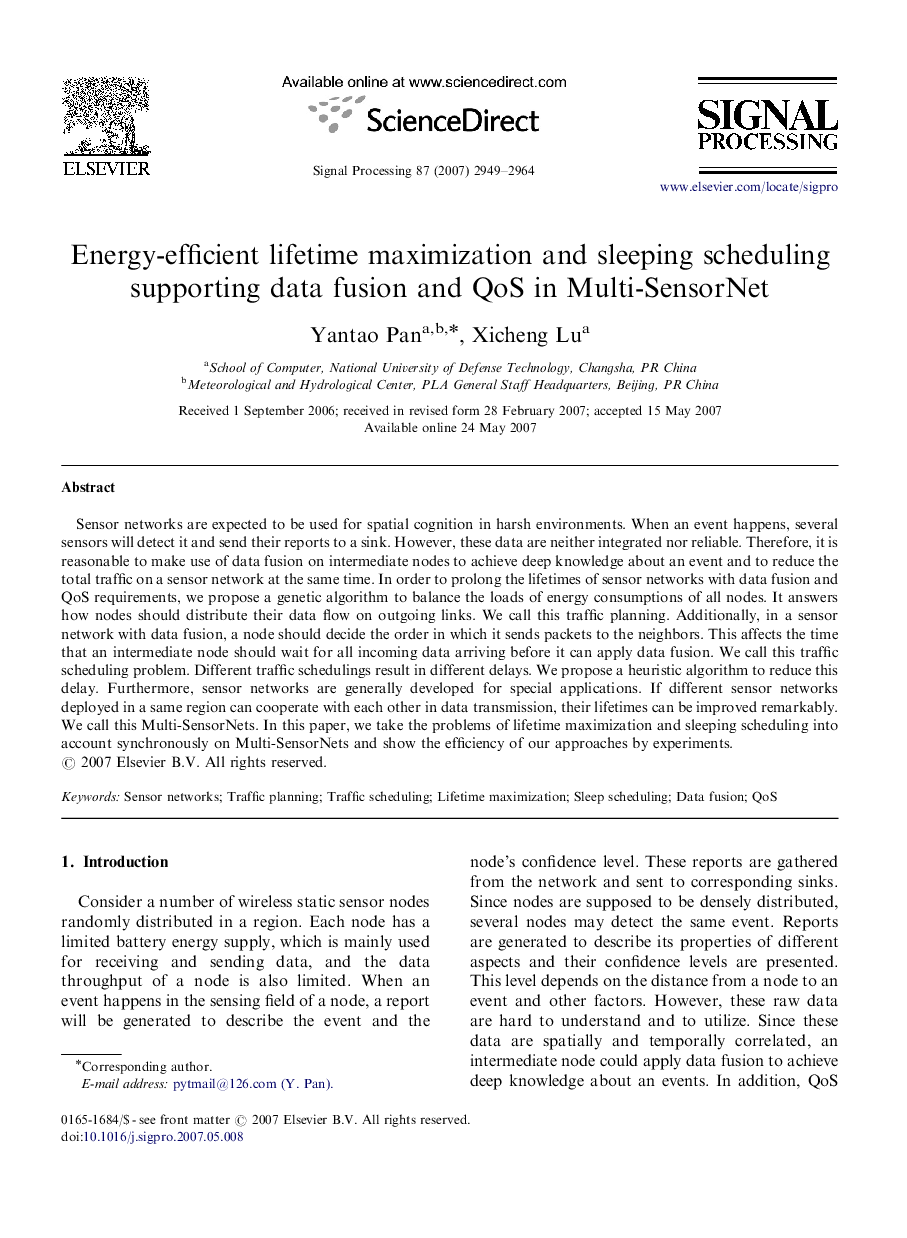| Article ID | Journal | Published Year | Pages | File Type |
|---|---|---|---|---|
| 561871 | Signal Processing | 2007 | 16 Pages |
Sensor networks are expected to be used for spatial cognition in harsh environments. When an event happens, several sensors will detect it and send their reports to a sink. However, these data are neither integrated nor reliable. Therefore, it is reasonable to make use of data fusion on intermediate nodes to achieve deep knowledge about an event and to reduce the total traffic on a sensor network at the same time. In order to prolong the lifetimes of sensor networks with data fusion and QoS requirements, we propose a genetic algorithm to balance the loads of energy consumptions of all nodes. It answers how nodes should distribute their data flow on outgoing links. We call this traffic planning. Additionally, in a sensor network with data fusion, a node should decide the order in which it sends packets to the neighbors. This affects the time that an intermediate node should wait for all incoming data arriving before it can apply data fusion. We call this traffic scheduling problem. Different traffic schedulings result in different delays. We propose a heuristic algorithm to reduce this delay. Furthermore, sensor networks are generally developed for special applications. If different sensor networks deployed in a same region can cooperate with each other in data transmission, their lifetimes can be improved remarkably. We call this Multi-SensorNets. In this paper, we take the problems of lifetime maximization and sleeping scheduling into account synchronously on Multi-SensorNets and show the efficiency of our approaches by experiments.
